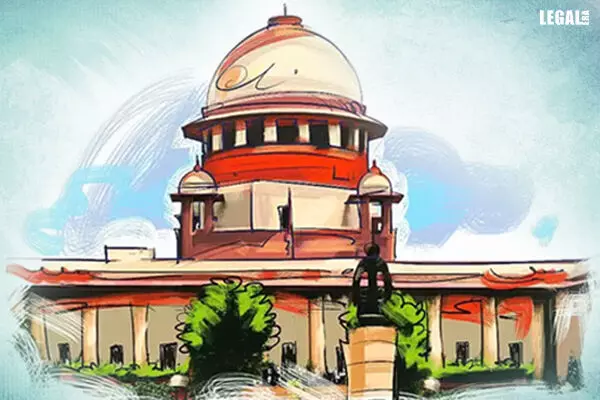- Home
- News
- Articles+
- Aerospace
- Artificial Intelligence
- Agriculture
- Alternate Dispute Resolution
- Arbitration & Mediation
- Banking and Finance
- Bankruptcy
- Book Review
- Bribery & Corruption
- Commercial Litigation
- Competition Law
- Conference Reports
- Consumer Products
- Contract
- Corporate Governance
- Corporate Law
- Covid-19
- Cryptocurrency
- Cybersecurity
- Data Protection
- Defence
- Digital Economy
- E-commerce
- Employment Law
- Energy and Natural Resources
- Entertainment and Sports Law
- Environmental Law
- Environmental, Social, and Governance
- Foreign Direct Investment
- Food and Beverage
- Gaming
- Health Care
- IBC Diaries
- In Focus
- Inclusion & Diversity
- Insurance Law
- Intellectual Property
- International Law
- IP & Tech Era
- Know the Law
- Labour Laws
- Law & Policy and Regulation
- Litigation
- Litigation Funding
- Manufacturing
- Mergers & Acquisitions
- NFTs
- Privacy
- Private Equity
- Project Finance
- Real Estate
- Risk and Compliance
- Student Corner
- Take On Board
- Tax
- Technology Media and Telecom
- Tributes
- Viewpoint
- Zoom In
- Law Firms
- In-House
- Rankings
- E-Magazine
- Legal Era TV
- Events
- Middle East
- Africa
- News
- Articles
- Aerospace
- Artificial Intelligence
- Agriculture
- Alternate Dispute Resolution
- Arbitration & Mediation
- Banking and Finance
- Bankruptcy
- Book Review
- Bribery & Corruption
- Commercial Litigation
- Competition Law
- Conference Reports
- Consumer Products
- Contract
- Corporate Governance
- Corporate Law
- Covid-19
- Cryptocurrency
- Cybersecurity
- Data Protection
- Defence
- Digital Economy
- E-commerce
- Employment Law
- Energy and Natural Resources
- Entertainment and Sports Law
- Environmental Law
- Environmental, Social, and Governance
- Foreign Direct Investment
- Food and Beverage
- Gaming
- Health Care
- IBC Diaries
- In Focus
- Inclusion & Diversity
- Insurance Law
- Intellectual Property
- International Law
- IP & Tech Era
- Know the Law
- Labour Laws
- Law & Policy and Regulation
- Litigation
- Litigation Funding
- Manufacturing
- Mergers & Acquisitions
- NFTs
- Privacy
- Private Equity
- Project Finance
- Real Estate
- Risk and Compliance
- Student Corner
- Take On Board
- Tax
- Technology Media and Telecom
- Tributes
- Viewpoint
- Zoom In
- Law Firms
- In-House
- Rankings
- E-Magazine
- Legal Era TV
- Events
- Middle East
- Africa
Submit Suggestions for Model Builder-Buyer Agreement with Mandatory RERA Clauses: Supreme Court asks States

Submit Suggestions for Model Builder-Buyer Agreement with Mandatory RERA Clauses: Supreme Court asks States
Supreme Court in the case of Ashwini Kumar Upadhyay vs. Union of India asked states to submit suggestions to the Union Ministry of Housing and Urban Affairs on the model builder-buyer agreement with mandatory provisions of the Real Estate (Regulation and Development) Act, 2016 (in short RERA).
A Public Interest Litigation was filed by Advocate Ashwini Upadhyay seeking a model builder-buyer agreement. Previously, the Apex Court had observed that a model agreement was essential to guard the interests of home buyers and had requested the Union to frame a model agreement after taking suggestions from the States. Later, the Court asked the Union to examine the rules framed by the States under RERA to determine if crucial norms have been incorporated.
Subsequently, the Central Government proposed to submit before the Supreme Court a model builder-buyer agreement with mandatory clauses which cannot be altered by the States or the Union Territories.
Devashish Bharuka, an amicus curiae attorney, stated at the outset that the court had requested that Part A of the model agreement, which was to have core clauses with the mandatory provisions of the Real Estate (Regulation and Development) Act 2016 for the protection of the home buyers, be at least framed in accordance with the previous order. He continued by saying that Part B was to be drafted by the States and would include additional clauses based on the needs of the various States and Union territories, provided that they did not conflict with or dilute clauses contained in Part A.
The bench comprising of Chief Justice DY Chandrachud and Justice PS Narasimha remarked that, "We may not be able to dispose it today. We will keep it on a Friday maybe." Aishwarya Bhati, the Additional Solicitor General suggested that they could take suggestions of states for the agreement. Further, it was submitted by the amicus that three states had certain suggestions- " "One is Haryana. Second is Nagaland, where the Constitution Article 371A comes into play and third is Tamil Nadu which suggest that there should be two separate agreements."
Accordingly, the CJI dictated the order which states– "ASG Bhati and amicus Bharukha have placed a compendium on record comprising of Part A Clauses which are proposed to be uniform across the country; and Part B clauses which may be inserted by the states subject to the condition that they should not be contrary to or dilute the clauses of Part A and must conform to the provisions of the RERA Act. The compendium has been circulated to all the states and to the associations which are represented in the court. We permit the associations and the states as the case may be to submit their responses to the Union Ministry of Housing and Urban Affairs within a period of on or before 15 February 2023. The suggestions can then be taken into account while preparing the final compendium. Haryana, Nagaland, and Tamil Nadu have raised certain issues which may be taken into account. Listed in the last week of February."



